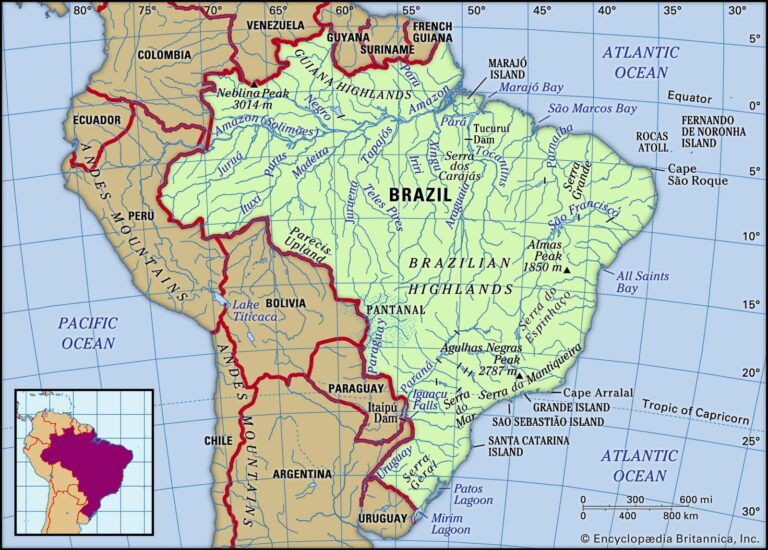Brazilian authorities have accused former President Jair Bolsonaro of plotting to flee to Argentina and seek asylum amid mounting legal challenges and investigations. According to statements released by Brazilian police, evidence suggests Bolsonaro may have been preparing to leave the country as pressure intensifies over his administration’s actions. The allegations come at a critical juncture in Brazil’s political landscape, raising questions about the former leader’s next moves and the broader implications for the region.
Brazilian Authorities Allege Bolsonaro’s Intent to Escape Legal Troubles by Fleeing to Argentina
Brazilian law enforcement officials have formally accused former President Jair Bolsonaro of orchestrating a plan to escape ongoing legal investigations by fleeing to Argentina. According to police reports, authorities uncovered detailed preparations indicating Bolsonaro’s intent to cross the border and seek political asylum, raising alarm over potential international diplomatic tensions. Investigators highlighted intercepted communications and travel arrangements that allegedly point to a coordinated effort to evade accountability for multiple criminal allegations currently under scrutiny in Brazil.
Details released by the prosecution outline several key factors that contributed to the decision to flag Bolsonaro’s intended exodus:
- Financial Transfers: Unusual fund movements to accounts in Argentina, suggesting pre-planning of resources.
- Logistical Support: Identified contacts facilitating border crossing and safe passage.
- Legal Motives: Attempts to leverage Argentina’s asylum protocols amid pending Brazilian court cases.
| Aspect | Details |
|---|---|
| Intercepted Communication | Encrypted messages dated March 2024 |
| Alleged Allies | 3 known political aides under investigation |
| Possible Destination | Buenos Aires, Argentina |
| Legal Charges | Corruption, misinformation, electoral fraud |
Implications for Regional Security and Diplomatic Relations Amid Asylum Claims
The accusations against former President Bolsonaro have sent ripples through South American diplomatic channels, raising questions about the stability of regional alliances and cross-border relations. Argentina, a neighboring country with historically close ties to Brazil, now faces a delicate situation balancing its diplomatic stance with international law obligations concerning asylum requests. The possibility of a high-profile political figure seeking refuge could strain Argentina’s relations not only with Brazil but also with other regional powers actively monitoring the implications for security and sovereignty.
Key considerations for regional security include:
- Potential escalation of diplomatic tensions between Brazil and Argentina
- Challenges in managing border security and immigration controls
- Impact on multinational security cooperation frameworks, such as UNASUR and Mercosur
- Precedents set for political asylum claims within South America
| Country | Diplomatic Position | Security Concerns |
|---|---|---|
| Brazil | Prosecution and containment of political fallout | Preservation of internal stability |
| Argentina | Balancing asylum protocol with bilateral relations | Border monitoring and refugee management |
| Chile | Watching regional precedents | Potential spillover security issues |
Recommendations for Strengthening Cross-Border Law Enforcement Collaboration and Political Accountability
To enhance the efficiency of cross-border law enforcement collaboration, establishing dedicated liaison offices between Brazil and Argentina can provide real-time intelligence sharing and operational coordination. This includes leveraging advanced technology platforms for secure communication and joint databases to track suspects and assets more effectively. Additionally, periodic joint training and simulation exercises will build trust and improve readiness against complex criminal scenarios that transcend national borders.
Political accountability must be strengthened through transparent oversight mechanisms that involve independent watchdog agencies and parliamentary committees tasked with scrutinizing law enforcement cooperation initiatives. Clear protocols for information exchange and legal cooperation should be codified in bilateral agreements to prevent misuse of shared intelligence and preserve civil liberties. The table below summarizes core strategies recommended for improving collaboration and accountability:
| Strategy | Key Benefit | Implementation Step | |
|---|---|---|---|
| Joint Liaison Offices | Improved communication | Establish bilateral agreements | |
| Shared Intelligence Platforms | Real-time data exchange | Deploy secure tech systems | |
| Independent Oversight | Increased transparency | Empower watchdog bodies | |
| Legal Protocols | Legal Protocols | Framework for cooperation | Codify in bilateral treaties |
| Joint Training Exercises | Enhanced operational readiness | Organize regular simulations |




